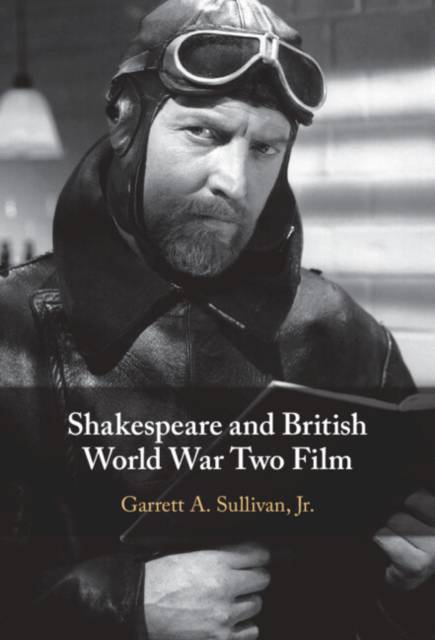
Je cadeautjes zeker op tijd in huis hebben voor de feestdagen? Kom langs in onze winkels en vind het perfecte geschenk!
- Afhalen na 1 uur in een winkel met voorraad
- Gratis thuislevering in België vanaf € 30
- Ruim aanbod met 7 miljoen producten
Je cadeautjes zeker op tijd in huis hebben voor de feestdagen? Kom langs in onze winkels en vind het perfecte geschenk!
- Afhalen na 1 uur in een winkel met voorraad
- Gratis thuislevering in België vanaf € 30
- Ruim aanbod met 7 miljoen producten
Zoeken
€ 152,95
+ 305 punten
Omschrijving
During World War Two, many British writers and thinkers turned to Shakespeare in order to articulate the values for which their nation was fighting. Yet the cinema presented moviegoers with a more multifaceted Shakespeare, one who signalled division as well as unity. Shakespeare and British World War Two Film models a synchronic approach to adaptation that, by situating the Shakespeare movie within histories of film and society, avoids the familiar impasse in which the playwright's works are the beginning, middle and end of critical study. Through close analysis of works by Laurence Olivier, Leslie Howard, Humphrey Jennings, and the partners Michael Powell and Emeric Pressburger, among others, this study demonstrates how Shakespeare served as a powerful imaginative resource for filmmakers seeking to think through some of the most pressing issues and problems that beset wartime British society.
Specificaties
Betrokkenen
- Auteur(s):
- Uitgeverij:
Inhoud
- Aantal bladzijden:
- 216
- Taal:
- Engels
Eigenschappen
- Productcode (EAN):
- 9781108842648
- Verschijningsdatum:
- 31/03/2022
- Uitvoering:
- Hardcover
- Formaat:
- Genaaid
- Afmetingen:
- 152 mm x 229 mm
- Gewicht:
- 458 g

Alleen bij Standaard Boekhandel
+ 305 punten op je klantenkaart van Standaard Boekhandel
Beoordelingen
We publiceren alleen reviews die voldoen aan de voorwaarden voor reviews. Bekijk onze voorwaarden voor reviews.









